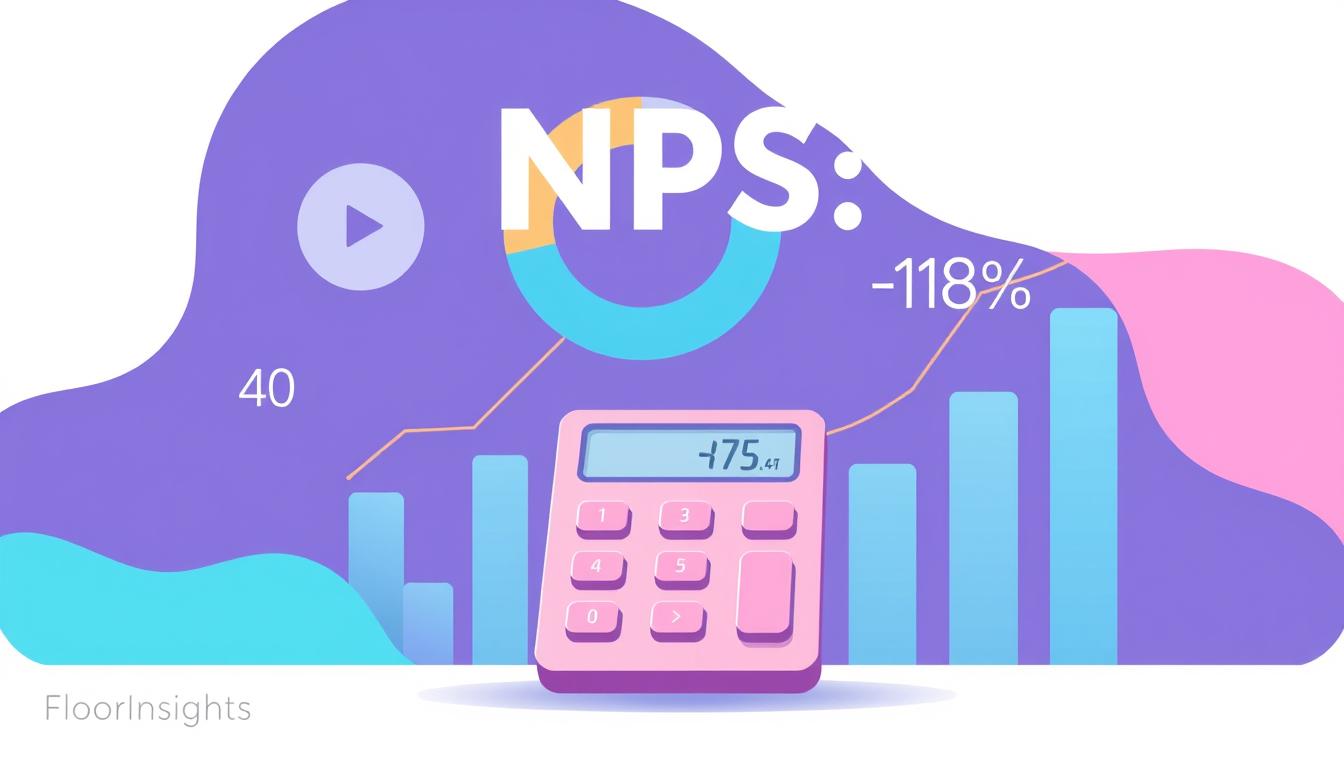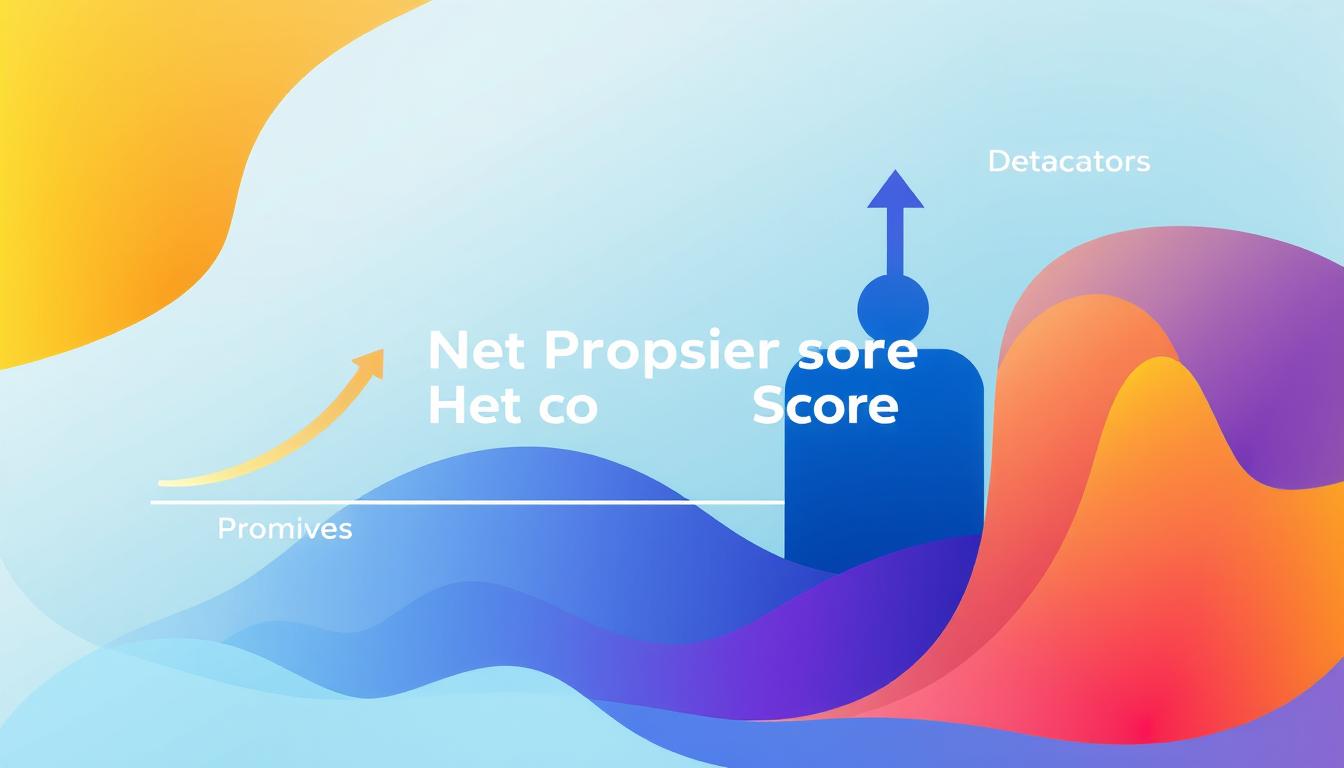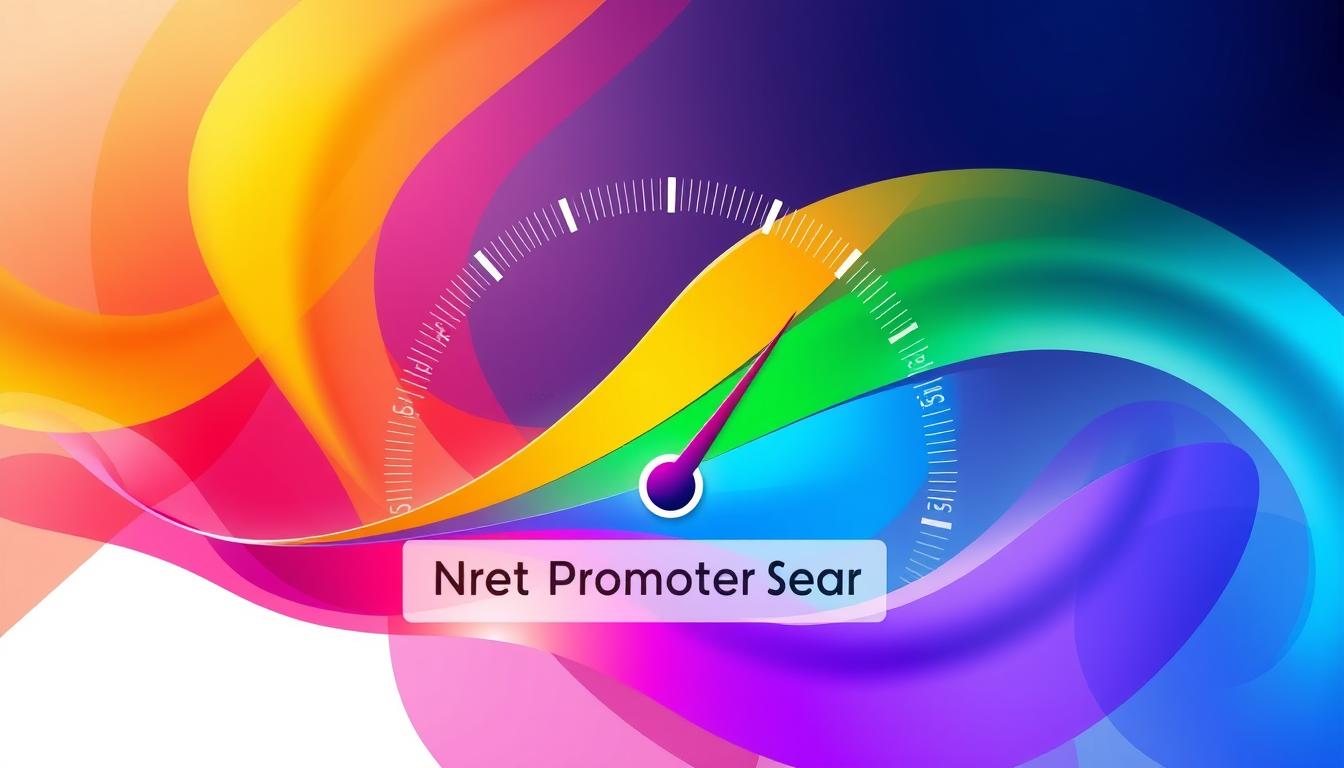As we delve deeper into the realm of customer feedback, the significance of the Net Promoter Score (NPS) becomes increasingly apparent. However, achieving true NPS data integrity is often challenged by various hurdles in data collection and manipulation. In this article, we will explore how blockchain technology can pave the way for enhanced NPS measurement through immutable data records and decentralized trust. By assessing the current practices and envisioning future trends in NPS, we aim to highlight how integrating blockchain can redefine our understanding of customer feedback, ultimately improving the net promoter score survey experience for businesses and their clients.
Key Takeaways
- Understanding the relationship between blockchain technology and NPS data integrity.
- Exploring the challenges currently faced in Net Promoter Score measurement.
- Examining how future trends in NPS could be shaped by blockchain implementation.
- Identifying the practical applications of blockchain in enhancing customer feedback systems.
- Recognizing the importance of maintaining data integrity for accurate customer loyalty measurement.
Understanding Net Promoter Score and Its Importance
The Net Promoter Score (NPS) serves as a vital tool for businesses aiming to quantify customer loyalty and satisfaction. Our understanding of this metric enables us to gauge how likely customers are to recommend our products or services. Established by Fred Reichheld in 2003, the NPS has evolved into a significant measurement framework employed by organizations globally to interpret customer sentiment.
What is Net Promoter Score?
The net promoter score categorizes customers into three distinct groups based on their likelihood to recommend: promoters, passives, and detractors. This classification allows us to analyze customer feedback effectively. The scoring ranges from 0 to 10, where responses of 9 to 10 indicate strong loyalty, ratings of 7 to 8 reflect a neutral stance, and scores below 6 signify dissatisfaction. By interpreting these ratings, we can gain profound insights into the overall customer experience, highlighting the NPS importance for any business strategy.
The Role of NPS in Measuring Customer Loyalty
Understanding customer loyalty is essential, as it drives long-term success and profitability. The net promoter system allows us to track and enhance customer loyalty over time. Regularly measuring NPS provides visibility into changes in customer perceptions and satisfaction levels. This feedback loop equips us to identify areas for improvement and implement strategies that foster stronger relationships with our customers. By leveraging the net promoter score, we can align our offerings with customer expectations, ultimately driving higher engagement and loyalty.
The Basics of Blockchain Technology
In today’s rapidly evolving digital landscape, understanding blockchain technology is essential. This digital ledger technology has the potential to revolutionize various industries, ensuring secure and transparent transactions.
Defining Blockchain and Its Key Features
Blockchain serves as a decentralized digital ledger that sufficiently records transactions across numerous computers, enhancing the security of data. Among its notable blockchain features are:
- Decentralization: No single entity controls the entire network.
- Immutability: Once recorded, data cannot be altered retroactively.
- Transparency: All transactions are visible to participants in the network.
- Security: Advanced cryptographic techniques protect data from unauthorized access.
How Blockchain Works: A Simple Explanation
To grasp how blockchain works, we must recognize that it organizes transactions into blocks. These blocks are then linked chronologically, forming a blockchain. Each block comprises a unique cryptographic hash of the preceding block. If any alteration attempts to occur within a block, it would necessitate changing every subsequent block. This chaining system upholds the integrity of the data, reinforcing the overall reliability of the blockchain.
Current Challenges in NPS Data Collection
As we navigate the complexities of measuring customer loyalty through the Net Promoter Score (NPS), we must acknowledge the significant challenges that impact NPS data integrity. Various factors contribute to these data collection challenges, undermining the trustworthiness and reliability of the results we gather.
Common Issues Affecting NPS Data Integrity
Several common issues plague our NPS data collection efforts, leading to questions about the accuracy of insights derived from these surveys. Key problems include:
- Low Response Rates: A limited number of participants can lead to conclusions that are not representative of the entire customer base.
- Biased Feedback: Incentives or pressure to provide favorable responses may skew results, creating a misleading picture of customer satisfaction.
- Data Manipulation: Intentional changes to survey results can distort the true sentiment of customers, impacting strategic decision-making.
The Impact of Data Manipulation on Results
Data manipulation affects NPS data integrity significantly. When organizations inadvertently or deliberately influence customer responses, the reliability of NPS scores diminishes. This manipulation can stem from:
- Survey design choices that lead respondents towards specific scores.
- External encouragement for favorable ratings from customer service representatives.
- Ignoring negative feedback during analysis, which ultimately skews our understanding of customer sentiments.
Recognizing these challenges helps us craft strategies that reinforce the integrity of our NPS data collection processes, ensuring more accurate measures of customer loyalty.
How Blockchain Enhances Data Integrity
As we delve into the potential of blockchain technology, it becomes evident how it dramatically enhances data integrity. The unique properties of this technology address critical concerns surrounding the authenticity and reliability of data used in Net Promoter Score (NPS) surveys.
Immutable Data Records
One of the core features of blockchain is its ability to create immutable records. Once entered into the blockchain, data cannot be changed or deleted without consensus from the entire network. This characteristic ensures the integrity of NPS survey results, as alterations become nearly impossible. By employing blockchain, organizations can confidently report on customer feedback, knowing that the documented information remains accurate and untampered.
Decentralization and Trust in Data
The decentralized nature of blockchain further fosters trust in data among stakeholders. Each participant has the capability to verify the accuracy of the recorded information independently. This transparency eliminates the dependence on a single central authority, reducing the risk of data manipulation. As a result, our confidence in using blockchain technology for NPS surveys grows, knowing that it supports a more reliable system for measuring customer loyalty.
Implementing Blockchain for NPS Surveys
Embedding blockchain technology into NPS surveys represents a significant step forward in enhancing data collection and integrity. Organizations increasingly recognize the benefits of integrating blockchain with existing net promoter score software to secure customer feedback. This approach not only safeguards data but also instills greater confidence among respondents regarding the confidentiality and authenticity of their insights.
Integration with Net Promoter Score Software
The integration of blockchain into net promoter score software can revolutionize the way we conduct NPS surveys. By utilizing blockchain implementation, we create a decentralized and transparent system capable of recording feedback without risks of manipulation. Key features of this integration include:
- Enhanced Security: Ensures that data collected through NPS surveys is tamper-proof.
- Increased Transparency: Stakeholders gain access to authenticated data, fostering trust.
- Real-time Analytics: Facilitates immediate insights into customer sentiments and trends.
Case Studies of Successful Integrations
Numerous case studies demonstrate the successful deployment of blockchain in NPS surveys. One noteworthy example involves a leading retail brand that adopted blockchain technology to improve feedback mechanisms. The results were compelling:
| Aspect | Before Blockchain Implementation | After Blockchain Implementation |
|---|---|---|
| Data Integrity | Susceptible to manipulation | Immutable records |
| Customer Trust | Moderate | High |
| Response Rate | 65% | 80% |
As illustrated, organizations embracing this innovative approach can significantly enhance their customer feedback processes. The evolution of NPS surveys in conjunction with blockchain technology positions businesses to compete more effectively in the fast-paced Indian market.
Future Trends in NPS Measurement
The landscape of Net Promoter Score (NPS) measurement is undergoing significant transformation. Our understanding of customer loyalty and feedback is evolving, accompanied by the rise of innovative methodologies. Embracing future trends in NPS will be essential for organizations aiming to enhance their competitive edge.
The Evolution of Net Promoter Score Surveys
The NPS survey evolution is marked by a shift from traditional methods to more dynamic approaches. As we adapt to changing customer expectations, organizations must explore diverse survey formats. This includes shorter surveys, interactive feedback mechanisms, and real-time data collection. These innovations can lead to more accurate insights into customer sentiment, fostering greater loyalty.
Adapting to New Technologies: What Lies Ahead
New technologies in NPS, such as artificial intelligence and machine learning, promise to revolutionize how we analyze and interpret customer feedback. We foresee a future where automated systems can trigger surveys at the most opportune moments, enhancing response rates and outcomes. Organizations leveraging these advancements will gain deeper insights into customer behavior, allowing for tailored marketing strategies and improved customer experiences.
| Technology | Description | Impact on NPS |
|---|---|---|
| AI-Powered Analytics | Utilizes machine learning to analyze customer feedback. | Provides predictive insights into customer loyalty trends. |
| Real-Time Feedback Tools | Incorporates feedback mechanisms within customer interactions. | Enhances the immediacy and relevance of responses. |
| Mobile Surveys | Delivers surveys via mobile platforms. | Increases accessibility and overall response rates. |
Blockchain and Customer Relationship Management (CRM)
Integrating blockchain into our Customer Relationship Management (CRM) systems marks a significant leap forward in how we enhance the efficiency and accuracy of customer data management. This technology serves as a robust ledger for capturing customer interactions, making it possible for organizations to maintain a single source of truth regarding customer feedback and history. Using blockchain in CRM contributes to achieving a reliable framework for assessing customer satisfaction metrics such as Net Promoter Score (NPS).
Enhancing CRM Systems with Blockchain Technology
By employing blockchain technology, we can achieve substantial CRM systems enhancement through features like data immutability and decentralization. Every interaction recorded on the blockchain becomes tamper-proof, eliminating issues related to data manipulation. This technology empowers us to streamline processes and provide real-time insights into customer sentiments. Enhanced security protocols foster trust among customers, encouraging them to share honest feedback.
The Role of CRM in Supporting NPS Initiatives
Effective management of customer relationships is paramount for organizations aiming to support NPS initiatives. By leveraging blockchain, we ensure that the feedback gathered is both valid and reliable, paving the way for informed decision-making regarding customer experience strategies. The integration of these technologies allows us to align our CRM efforts with broader business goals, leading to improved customer satisfaction and loyalty.
Advantages of Using Blockchain in NPS Platforms
The application of blockchain technology within Net Promoter Score frameworks offers significant benefits. By leveraging its unique characteristics, we can witness improvements in both the integrity of customer feedback and the overall credibility of the NPS process.
Increasing Transparency in Customer Feedback
One of the prominent advantages of blockchain in NPS lies in enhanced transparency in feedback collection. Stakeholders can track the entire process, from data entry to final interpretation. Every interaction and response is logged on the blockchain, enabling participants to verify the authenticity of the information. This level of transparency fosters trust among customers, encouraging them to provide honest feedback without fear of manipulation.
Reducing Fraud in Response Collection
Another major benefit concerns reducing fraud in gathering responses. Blockchain technology ensures that only verified and valid feedback contributes to the Net Promoter Score calculations. This minimizes potential biases or falsifications that may occur in traditional data collection methods. By safeguarding the process from fraudulent entries, we can enhance the accuracy of the NPS results, ultimately leading to better decision-making and improved customer relationships.
| Advantages | Description |
|---|---|
| Transparency in Feedback | Stakeholders can verify the origins of feedback, fostering trust. |
| Fraud Reduction | Ensures only legitimate responses are counted, improving accuracy. |
| Data Integrity | Immutable records enhance confidence in collected data. |
| Real-Time Updates | Instant access to the latest feedback and responses. |
| Cost Efficiency | Reduces the need for multiple verification processes. |
Potential Limitations and Challenges of Blockchain
While we recognize the substantial benefits that blockchain can offer to NPS, it is essential to consider the potential limitations and challenges associated with its adoption. Various factors can impede the implementation, impacting the effectiveness of this technology in enhancing data integrity.
Technical Barriers to Adoption
Organizations often face significant technical barriers when implementing blockchain solutions. These barriers include:
- The necessity for skilled personnel trained in blockchain technology.
- Integration complexities with existing systems and software.
- Scalability issues related to handling large volumes of data.
Addressing these technical challenges is crucial for companies aiming to leverage blockchain for enhanced NPS accuracy and reliability.
Understanding the Cost Implications
The cost implications of blockchain deployment require careful consideration. Companies need to evaluate:
- Initial investment for setup and infrastructure.
- Ongoing maintenance and potential upgrades.
- Training costs for staff to ensure smooth operation and adoption.
Organizations must balance these cost implications of blockchain against the long-term advantages of improved data integrity and customer trust within their NPS platforms.
| Challenge | Description |
|---|---|
| Technical Barriers | Issues related to integration, scalability, and the need for expertise. |
| Cost Implications | Investment requirements, maintenance costs, and training expenses. |
Expert Opinions on Blockchain and NPS
As we delve into the intersection of blockchain technology and Net Promoter Score (NPS), expert opinions on NPS offer invaluable perspectives. Industry leaders emphasize the need for innovative solutions to address existing challenges in customer feedback collection. By leveraging blockchain, businesses can enhance the integrity and trustworthiness of their NPS data.
Insights from Industry Leaders
Notable figures in the field of customer experience and data management have shared their insights on the transformative potential of blockchain for NPS systems. They argue that this technology not only bolsters data security but also increases transparency. Adopting blockchain can lead to more accurate survey results, enhancing customer loyalty and satisfaction.
Predictions for the Future of NPS and Blockchain
Future predictions from experts suggest a significant shift in how companies will approach NPS measurement. As blockchain matures and becomes more accessible, it is expected to become a standard practice in collecting reliable customer feedback. This evolution promises to foster greater consumer trust and engagement, positioning organizations to improve their overall performance.

Conclusion
In summary of findings, the integration of blockchain technology with Net Promoter Score systems presents a transformative opportunity for organizations aiming to enhance data integrity and foster customer trust. By leveraging blockchain’s immutable records and decentralized nature, we can mitigate common issues that currently plague NPS data collection, such as manipulation and lack of transparency.
As we look ahead, the future outlook for NPS measurement seems promising. The alignment of these technologies not only supports a more reliable feedback mechanism but also empowers businesses to adapt to evolving customer expectations. In this rapidly changing landscape, embracing these innovations will be essential for companies striving to maintain a competitive edge.
Ultimately, the journey towards integrating blockchain with NPS is not without its challenges. However, by understanding and addressing these hurdles, we can pave the way for a more trustworthy and effective approach to measuring customer loyalty. This evolution is vital for fostering long-term relationships with our customers in an increasingly digital world.
FAQ
What is the Net Promoter Score (NPS)?
The Net Promoter Score (NPS) is a customer loyalty metric that measures how likely customers are to recommend a product or service. It categorizes customers into promoters, passives, and detractors based on their responses to a net promoter score survey.
How does blockchain enhance NPS data integrity?
Blockchain technology enhances NPS data integrity by creating immutable records that prevent unauthorized changes. Every transaction is recorded and cannot be altered without consensus, ensuring that net promoter score measurements are authentic and reliable.
What are the common challenges in NPS data collection?
Common challenges affecting NPS data integrity include low response rates, biased feedback, and potential data manipulation. These issues can skew the results of net promoter score surveys, leading to unreliable insights about customer loyalty.
How can organizations implement blockchain in their NPS surveys?
Organizations can implement blockchain by integrating it with existing net promoter score software. This allows for secure data collection and storage, ultimately improving the reliability of customer feedback.
What advantages does blockchain bring to NPS platforms?
Are there any limitations to using blockchain for NPS?
Yes, potential limitations include technical barriers to adoption and cost implications of implementing blockchain technology. Organizations must consider these challenges alongside the long-term benefits of improved data integrity and customer trust.
What future trends should we expect in NPS measurement?
The future of NPS measurement is expected to evolve with new technologies like AI and machine learning, enhancing feedback processes. Blockchain is poised to play a significant role in this evolution by ensuring reliability and accuracy in net promoter score surveys.
How does CRM integrate with blockchain technology for NPS initiatives?
Blockchain enhances Customer Relationship Management (CRM) systems by providing a tamper-proof record of customer interactions and feedback. This integrity is crucial for managing effective customer relationships and supports successful NPS initiatives.
What expert opinions exist regarding blockchain’s impact on NPS?
Industry leaders advocate for the adoption of blockchain technology to address current challenges in customer feedback. Many predict that as blockchain technology matures, it will become standard in NPS measurement, enhancing customer interactions’ reliability and trustworthiness.






